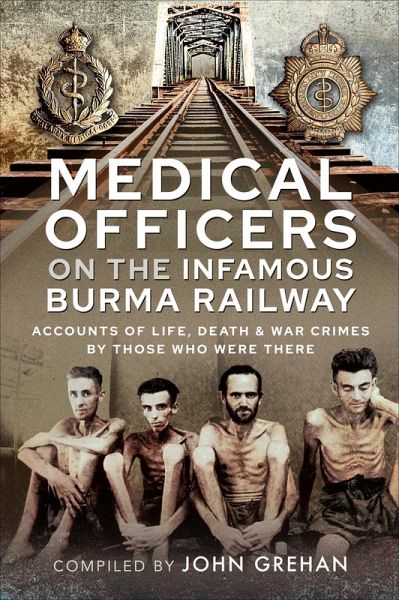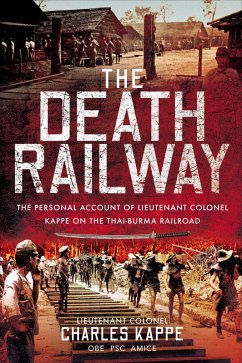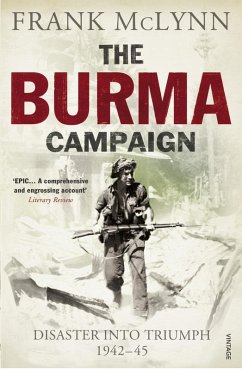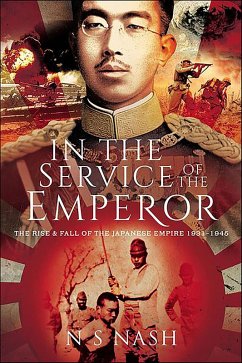
Medical Officers on the Infamous Burma Railway (eBook, ePUB)
Accounts of Life, Death & War Crimes by Those Who Were There With F-Force
Redaktion: Grehan, John
Versandkostenfrei!
Sofort per Download lieferbar
7,48 €
inkl. MwSt.
Weitere Ausgaben:

PAYBACK Punkte
0 °P sammeln!
In 1944, a compilation of medical reports from the main prisoner of war work camps along the infamous Thailand-Burma railway was submitted to General Arimura Tsunemichi, commander of the Japanese Prisoner of War Administration. The authors stated that the reports were neither complaints nor protests, but merely statements of fact. The prisoners received only one reply - that all copies of the documents must be destroyed. As one officer later recalled, 'Of course, this was not done' and copies of these reports survived, stored away in dusty files, for future generations to learn the truth. Work...
In 1944, a compilation of medical reports from the main prisoner of war work camps along the infamous Thailand-Burma railway was submitted to General Arimura Tsunemichi, commander of the Japanese Prisoner of War Administration. The authors stated that the reports were neither complaints nor protests, but merely statements of fact. The prisoners received only one reply - that all copies of the documents must be destroyed. As one officer later recalled, 'Of course, this was not done' and copies of these reports survived, stored away in dusty files, for future generations to learn the truth. Work on the railway began in June 1942, the Japanese using mainly forced civilian labour as well as some 12,000 British and Commonwealth PoWs. Such is well-known. So are the stories of ill-treatment and brutality, many of which have been published. The vast majority of these accounts, however, were written after the war, colored by the sufferings the men had endured. The reports presented here are quite unique, for they were written by the medical officers in the camps as the events they describe were unfolding before their eyes. The health and well-being of the PoWs was the medical officers' primary concern, and these reports enable us to learn exactly how the men were treated, fed and cared for in unprecedented detail. There are no exaggerated tales or false memories here, merely facts, shocking and disturbing though they may be. We learn how the medical officers organised their hospitals and dealt with the terrible diseases, beatings and malnutrition the men endured. As the compilers of the reports state, 45 per cent of the men under their care died in the course of just twelve months. But equally, we find that the prisoners did have a voice and had the facilities, and the courage, to write and submit such reports to the Japanese, perhaps contradicting some of the long-held beliefs about conditions in the camps. Through the words of the Medical Officers themselves, some of the detail of what really happened on the Death Railway, for good or ill, is revealed here.













